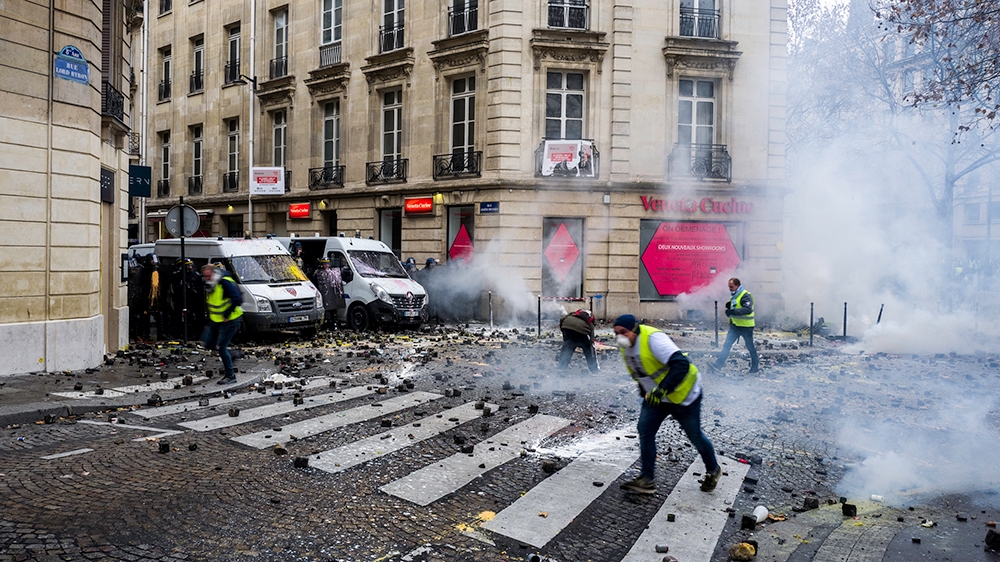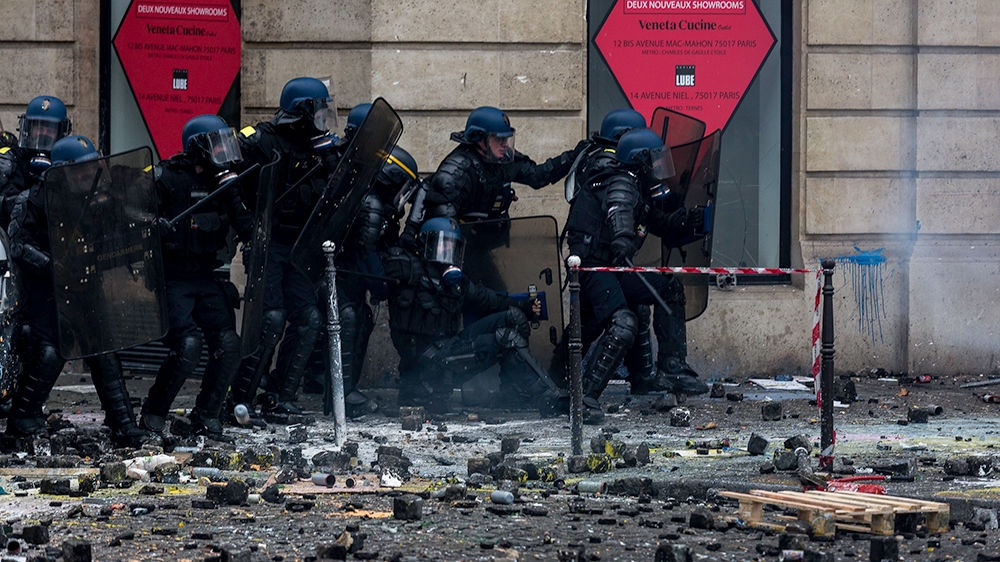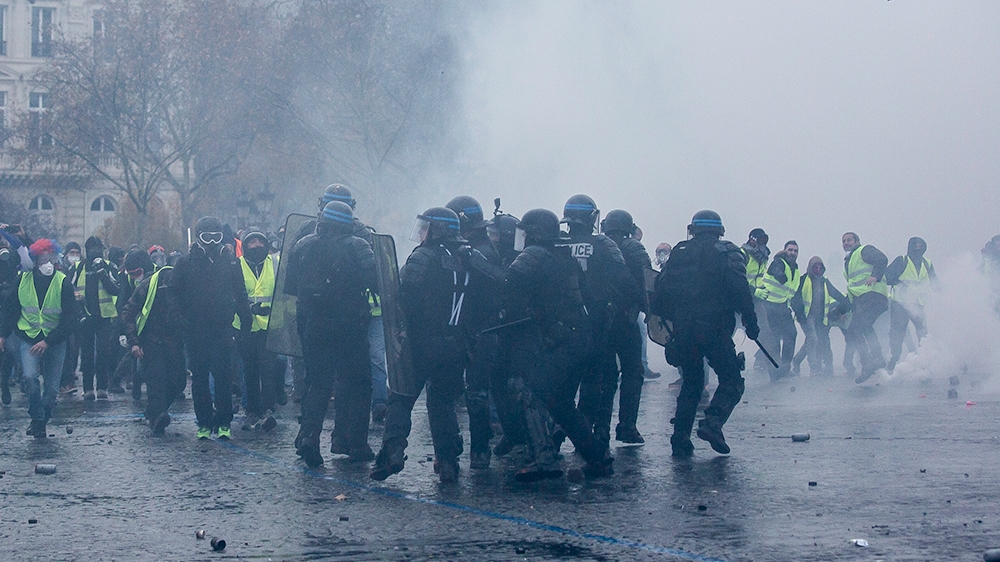Macron visits Arc de Triomphe after worst Paris riots in a decade
French President Emmanuel Macron has visited the Arc de Triomphe in Paris, a day after the famous landmark was defaced during riots, as the government considers imposing a state of emergency.
TV images on Sunday showed the inside of the monument ransacked with a statue of Marianne, a symbol of the French Republic, smashed, and graffiti scrawled on the exterior.
Macron, back from the G20 summit and under heavy security, spoke with police and firefighters on one of the avenues near the Champs Elysees boulevard.
Some bystanders cheered the president but more jeered him, with some protesters chanting: “Macron, resign!”
The French president is set to hold an emergency government meeting on security issues later on Sunday.
Interior Minister Christophe Castaner attributed the violence to “specialists in sowing conflict, specialists in destruction”.
 |
| At least 412 people were arrested and 133 injured [Omar Havana/Al Jazeera] |
He did not rule out imposing a state of emergency – a demand made by the police union Alliance – declaring: “Nothing is taboo for me. I am prepared to examine everything.”
French government spokesperson Benjamin Griveaux said that “all options should be considered to maintain public order and safety.”
Reporting from Paris, Al Jazeera’s David Chater said that the attacks on the monument were carried out by a small minority of the protesters, but the damage to the landmark has touched a nerve in the French government.
“Of all the things that happened, the arson attacks, the attacks on the police, the attacks on the shops in the Champs Elysees, it is the Arc de Triomphe and the graffiti that was pasted over it, that is the biggest offence, as far as the administration is concerned,” he said.
The “yellow vest” demonstrations, which were first triggered weeks ago by planned fuel price hikes, turned chaotic in the French capital on Saturday, which saw its worst riots in more than a decade.
French police officers responded with tear gas, after demonstrators hurled stones and projectiles towards them, on the third weekend of demonstrations that have morphed into a broader rebuke of Macron.
Authorities said that at least 412 people were arrested and 133 injured, including 23 members of the security forces.
Six buildings were set ablaze, and nearly 190 fires were put out, the interior ministry said.
 |
| President Macron will discuss the security situation at a Sunday meeting [Omar Havana/Al Jazeera] |
‘They want chaos’
An estimated 75,000 protesters, the majority of them peaceful, were counted across France on Saturday afternoon, according to the interior ministry.
That number was well below the total on the first day of protests on November 17, when 282,000 people took part across the country. Last Saturday, 106,000 took to the streets.
But the vast plumes of smoke and tear gas that clouded the capital on Saturday were a testament to the escalation of violence in Paris.
“Those guilty of this violence don’t want change, they don’t want improvements, they want chaos. They betray the causes that they pretend to serve and which they manipulate,” Macron said on Saturday.
“They will be identified and brought to justice for their actions,” he said. “I will always respect debate and I will always listen to the opposition but I will never accept violence,” Macron said.
 |
| French police officers responded with tear gas, after demonstrators hurled stones and projectiles towards them [Omar Havana/Al Jazeera] |
The “yellow vest” movement erupted on social media in October and has since become a wider protest against Macron, who is accused of failing to recognise the rising cost of living that has left many people struggling.
The countrywide protests have included many pensioners and have been most active in small urban and rural areas where demonstrators have blocked roads, closed motorway toll booths, and even walled up the entrance to tax offices.
Two people have died and dozens have been injured in the rallies, which opinion polls suggest still attract the support of two out of three French people.
Attempts by the government to negotiate with the grassroots movement have failed, in large part because representatives have insisted on public talks broadcast on TV.
Macron has sought to douse the anger by promising three months of nationwide talks on how best to transform France into a low-carbon economy without penalising the poor.
He also vowed to slow the rate of increase in fuel taxes if international oil prices rise too rapidly but only after a tax rise due in January.
|
WATCH: Will Macron bow to the demands of ‘Yellow Vest’ protesters? (24:00) |




